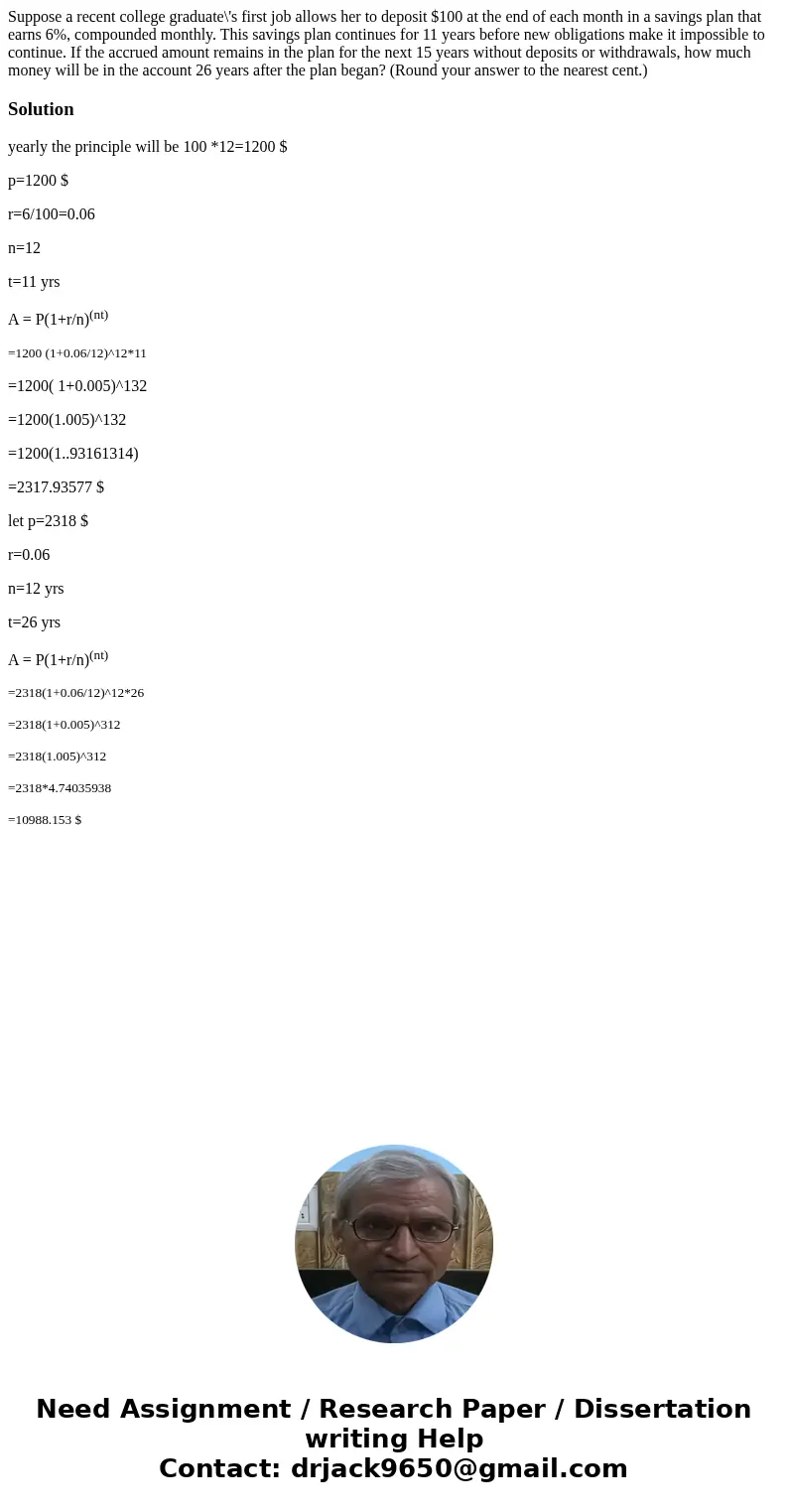Suppose a recent college graduates first job allows her to d
Suppose a recent college graduate\'s first job allows her to deposit $100 at the end of each month in a savings plan that earns 6%, compounded monthly. This savings plan continues for 11 years before new obligations make it impossible to continue. If the accrued amount remains in the plan for the next 15 years without deposits or withdrawals, how much money will be in the account 26 years after the plan began? (Round your answer to the nearest cent.)
Solution
yearly the principle will be 100 *12=1200 $
p=1200 $
r=6/100=0.06
n=12
t=11 yrs
A = P(1+r/n)(nt)
=1200 (1+0.06/12)^12*11
=1200( 1+0.005)^132
=1200(1.005)^132
=1200(1..93161314)
=2317.93577 $
let p=2318 $
r=0.06
n=12 yrs
t=26 yrs
A = P(1+r/n)(nt)
=2318(1+0.06/12)^12*26
=2318(1+0.005)^312
=2318(1.005)^312
=2318*4.74035938
=10988.153 $

 Homework Sourse
Homework Sourse